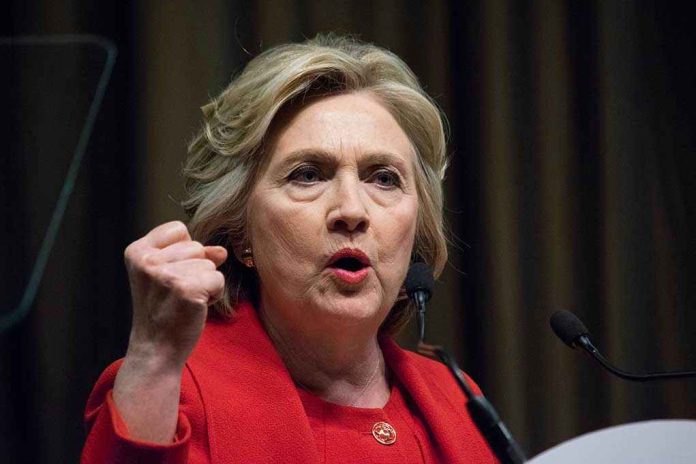
Explosive allegations from a former Bangladesh minister claim the Clinton family and USAID orchestrated the August 2025 regime change that ousted Prime Minister Sheikh Hasina, raising serious questions about American deep state interference in foreign governments.
Story Highlights
- Former Bangladesh minister accuses Clinton family and USAID of engineering Sheikh Hasina’s downfall through coordinated regime change operation
- Nobel laureate Muhammad Yunus installed as interim leader despite lacking democratic mandate, raising concerns about predetermined succession
- Bangladesh’s history reveals pattern of foreign-influenced coups dating back decades, suggesting vulnerability to external manipulation
- Clinton Foundation and USAID deny involvement, but longstanding ties to key players fuel suspicions of orchestrated political interference
Former Minister Makes Explosive Regime Change Claims
Former Bangladesh Minister Mohibul Hassan Chowdhury has leveled serious accusations against the Clinton family and USAID, claiming they orchestrated a carefully planned regime change operation to remove Sheikh Hasina from power. According to Chowdhury, the August 2025 uprising was not a spontaneous student movement but a calculated effort involving foreign actors with predetermined objectives. The allegations center on the rapid installation of Muhammad Yunus as interim leader, suggesting the transition was orchestrated rather than organic.
Suspicious Timing and Predetermined Succession Raises Red Flags
The swift installation of Nobel laureate Muhammad Yunus as interim government head within three days of Hasina’s ouster demonstrates troubling signs of pre-planning. Yunus, who has maintained longstanding relationships with Western donors including the Clinton network, emerged as the designated successor despite having no electoral mandate from the Bangladeshi people. This pattern mirrors classic regime change operations where foreign-backed figures are positioned to assume power immediately following government overthrow, bypassing democratic processes entirely.
Historical Pattern of Foreign-Influenced Political Instability
Bangladesh’s political history reveals a disturbing pattern of coups and foreign interference dating back to its 1971 independence. The assassination of founding father Sheikh Mujibur Rahman in 1975, multiple military interventions, and recurring allegations of external manipulation demonstrate the country’s vulnerability to foreign influence operations. This historical context provides a blueprint for understanding how external actors could exploit internal divisions to achieve regime change objectives, particularly when domestic unrest creates opportunities for intervention.
The current allegations fit within this established pattern of foreign powers leveraging local grievances to advance geopolitical interests. Student protests over civil service quotas provided the perfect cover for more sophisticated political operations, allowing external actors to amplify domestic discontent while positioning their preferred candidates for power succession.
USAID’s Role in Civil Society and Governance Programs
USAID maintains extensive operations in Bangladesh, funding numerous civil society organizations and governance initiatives that create networks of influence throughout the political system. These programs, while officially promoting democratic development, establish channels through which foreign policy objectives can be advanced under the guise of humanitarian assistance. The agency’s deep involvement in Bangladesh’s institutional landscape provides multiple entry points for political influence operations.
Do the Clinton Family and USAID Have Their Fingerprints on Regime Change in Bangladesh? https://t.co/dw1N5nE7Wk
— ConservativeLibrarian (@ConserLibrarian) November 12, 2025
Critics argue that USAID’s funding patterns and programmatic focus areas often align suspiciously with broader American foreign policy goals, raising questions about whether development assistance serves as cover for more sophisticated influence operations. The timing of increased international engagement following Hasina’s ouster suggests coordinated efforts to shape Bangladesh’s political transition according to external preferences rather than domestic democratic processes.
Sources:
Military coups in Bangladesh – Wikipedia
A New Era for Bangladesh? The First Hundred Days of Reform – Crisis Group
Political Turmoil in Bangladesh – Asia Society
Timeline of major events in Bangladesh – Statista





